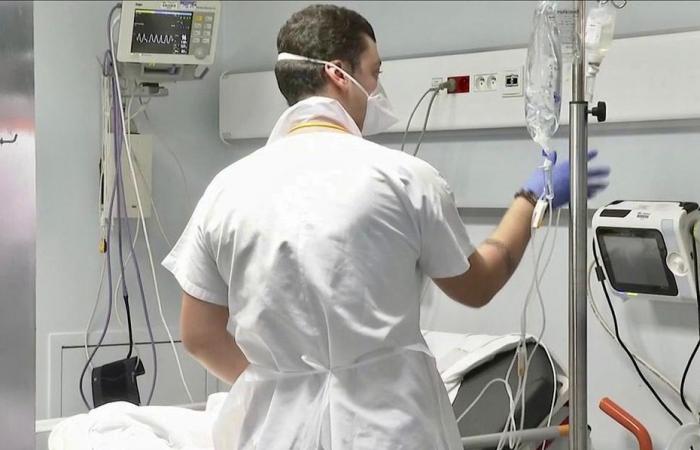Santé Publique France published this Friday its first epidemiological bulletin since the passage of Cyclone Chido. Numerous cases of superinfected wounds and psychological disorders have been noted. The agency also warns of the risk of waterborne disease linked to limited access to drinking water.
The first bulletin Public Health France’s epidemiological report since the passage of Cyclone Chido was published this Friday, January 3. The agency takes stock of health system data in the weeks following the disaster on December 14.
According to this bulletin, 1,440 visits to the emergency room were recorded between December 21 and 29. During this period, nine deaths were recorded at the CHM and 29 patients were admitted to intensive care. “Wounds and trauma were the main reasons for referral to the CHM emergency room, followed by diarrhea and vomiting.“, specifies Santé Publique France, which warns of the growing risk of complications for patients with chronic diseases”due to interruptions in care and treatment.” According to the agency, patients are hospitalized daily at the CHM to manage diabetes complications.
•
©Public Health France
An increasing number of patients with superinfected wounds is also noted, “sign of delays in medical care.“This situation led to serious complications such as necrosis and septic shock, requiring major interventions such as amputations.
The hospital’s activity was partly relieved by the arrival of the field hospital at the Cavani stadium, ESCRIM, from December 24. “Designed to care for 100 patients per day, this threshold was exceeded on the first day, with 113 patients“, specifies the bulletin. “This number doubled on the second day, reaching 200 patients.” Between December 24 and 29, 1,170 patients were treated again, mainly for wounds and trauma.
•
©Santé Publique France
At the Mramadoudou, Petite-Terre and Jacaranda dispensaries in Mamoudzou, the situation is similar: trauma “are very clearly the main reason for consultation“, come next”respiratory pathologies, diarrhea and abdominal pain and skin infections.“
Public Health France notes an increase in gastroenteritis and respiratory infections. “This peak should be interpreted with caution, as it could reflect a delay in patients seeking care.“, specifies Public Health France. The epidemic of bronchiolitis which had declared itself before the cyclone is still ongoing.
Surveillance patrols were organized ten days after the cyclone in several sectors of the commune of Tsingoni. Around sixty homes were inspected, almost half reported at least one person suffering from a psychological disorder. “Many people are suffering from “stress, fear or distress”, conditions exacerbated by the consequences of the cyclone“, the bulletin said.”Additionally, a significant number of households reported cases of diarrhea, fever or cough, affecting both children and adults.“
As of December 24, “a significant portion of families continue to consume raw water from rivers, rain or the Combani water reservoir, due to lack of access to drinking water“, note Public Health France also mentioning the lack of food “as a major problem, several people having expressed hunger situations.“The agency also notes difficulties in accessing care and treatment among the families interviewed.
If the immediate priority remains the care of the injured and vital emergencies, the risks of epidemics must be taken into account and anticipated.
Santé Publique France warns of the risks of epidemics, increased by the damage suffered by infrastructure. “LWater-borne pathologies such as acute rotavirus gastroenteritis, typhoid fever, cholera, as well as diseases such as leptospirosis and bronchiolitis, are among the main threats“, specifies the agency. Santé Publique France has also adapted its surveillance system in the face of the Cyclone Chido crisis. 8 health reservists are notably dedicated to this task among the 77 reservists currently in Mayotte.






